Senate Debate: Is a career in finance ethical?
01 Friday Mar 2013
Written by American Whig-Clio Society in Uncategorized
Last night, Whig-Clio hosted a Senate Debate addressing the resolution: This House believes a career in finance is unethical. It was a rousing and well-attended event, with Will Crouch, founder of 80,000 Hours, and Jake Nebel, a recent recipient of a Marshall Scholarship, arguing that a career in finance is ethical and Evan Soltas, who contributes to the Washington Post and Bloomberg View, and Mason Herson-Hord asserting that such a career is unethical.
President of the Senate Adam Tcharni opened the night by introducing the debaters and the topic.
Evan Soltas was the first debater to speak.
He argued that a career in finance is unethical because the financial system has been rigged to create government subsidies that create outlandish profits for financial firms without contributing much to society at large. He noted the high percentage of Princeton graduates who pursue careers in finance and remarked that it represented a profound waste of human capitol.
Will Crouch then took the stand and proceeded to assert that a career in finance is ethical insofar as the person pursuing the career donates half of his or her income to charity. Crouch noted that it was possible for such a person to make more of a difference this way because that money could fund a charity to hire at least two people to work for the charity, compared to the one person who would be working if the person chose a career in charity instead of finance.
The debate then opened up to questions and comments from the crowd. The debaters fielded many queries about their arguments and faced speeches from the crowd in support of both positions. After that portion of the proceedings concluded, Mason Herson-Herd and Jake Nebel delivered their rebuttals.
Herson-Herd argued that the debate must focus on financial careers as they are, not in a fantasy in which executives give away half of their income. He also asserted that the financial system is set up in such a way so as to incentivize immoral behavior and individuals who entered careers in finance faced the possibility of being corrupted by such a structure.
Jake Nebel delivered the final speech of the night. He dismissed the accusation that his side’s argument hinged on a fantasy version of a career and finance and went on to reiterate all the good that could result from donating income gained in a financial career.
Once Nebel concluded, the debaters received a round of applause for their spectacular performances from all those in attendance and a vote was held. The people voted to reject the resolution that a career in finance is unethical by a margin of 12 to 10 votes.
The Senate Debate was thought-provoking and engaging and the debaters on both sides demonstrated considerable powers of discourse and persuasion. In other words, it was everything a Whig-Clio event should be.

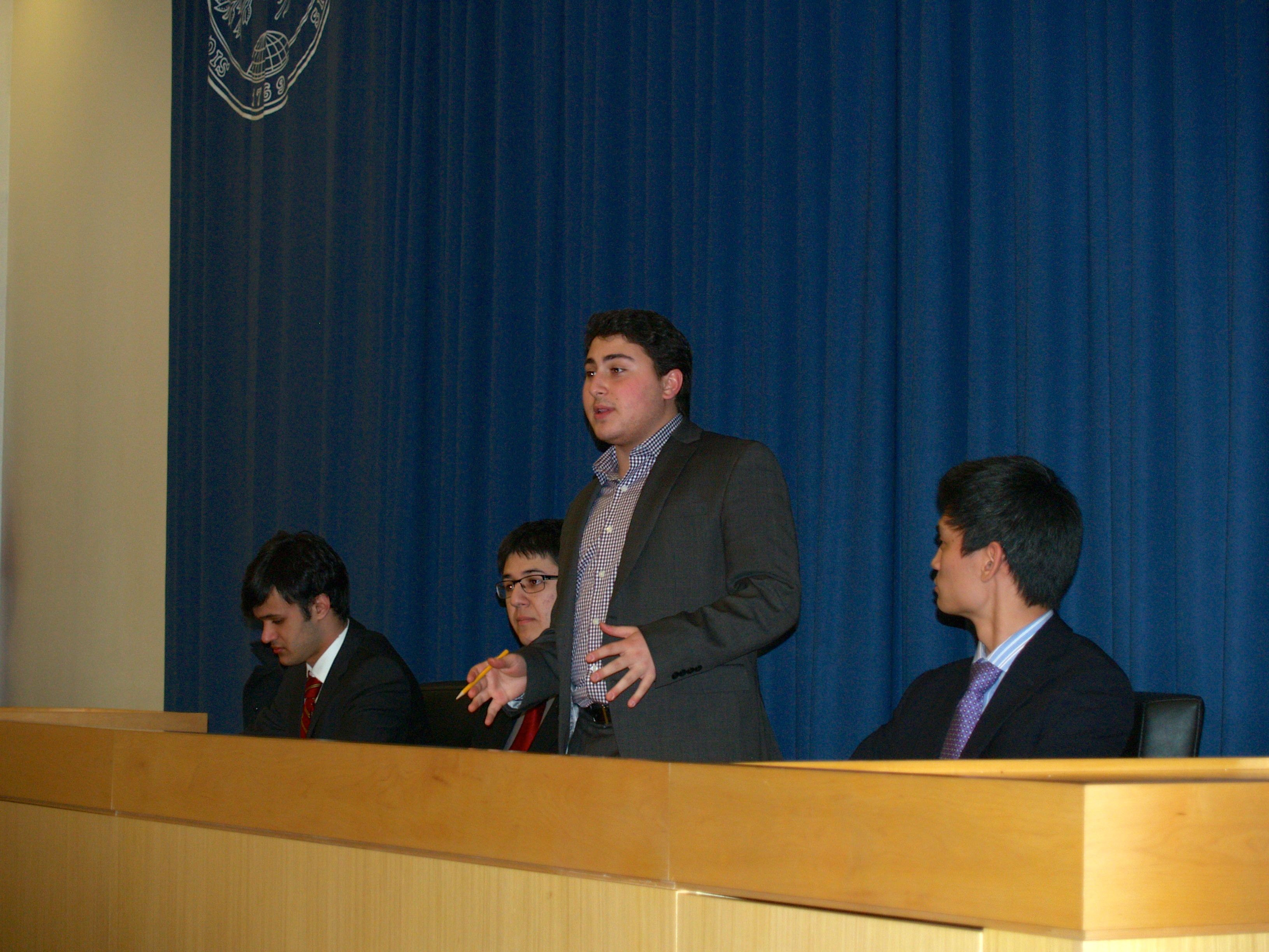
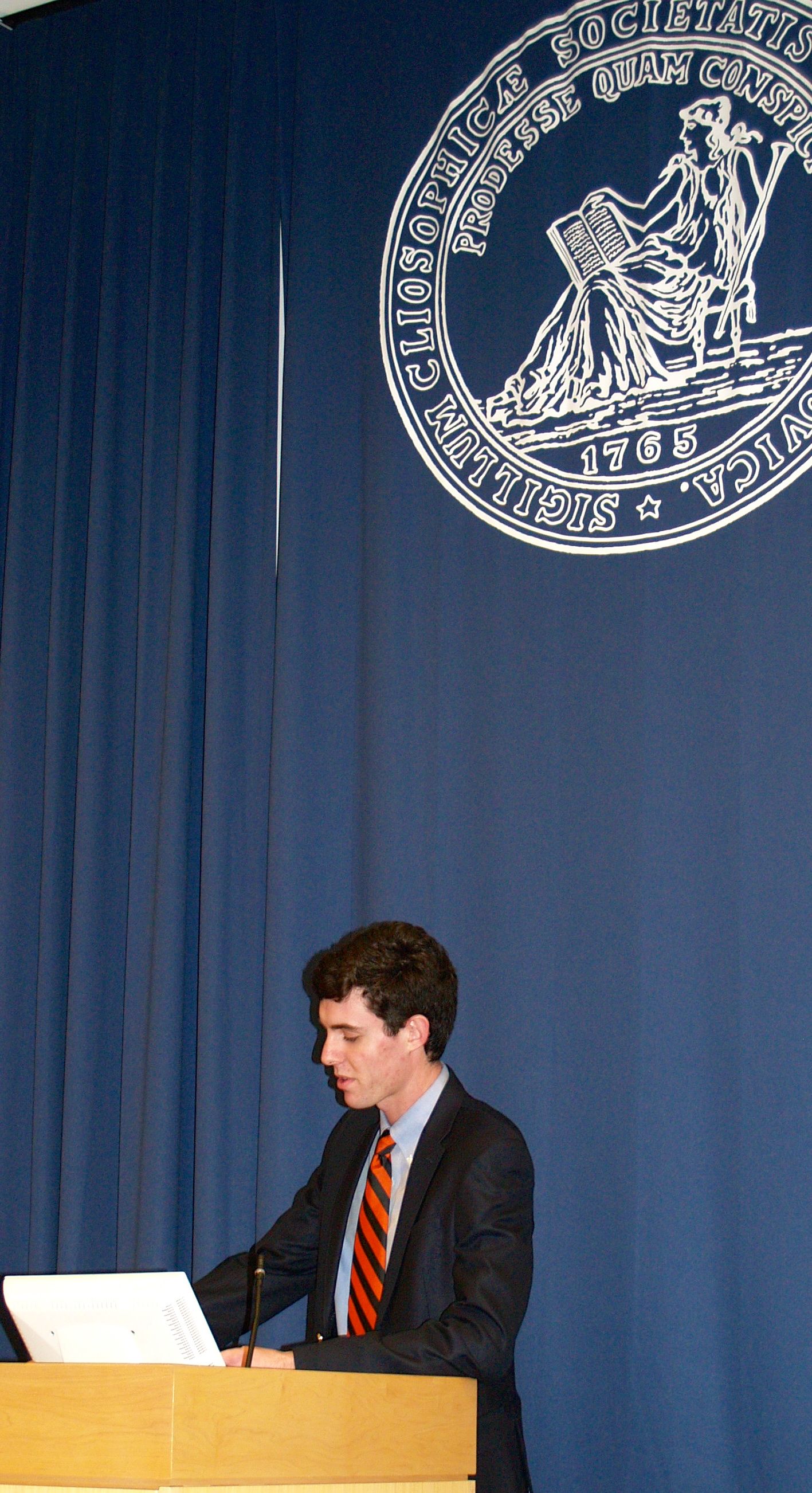
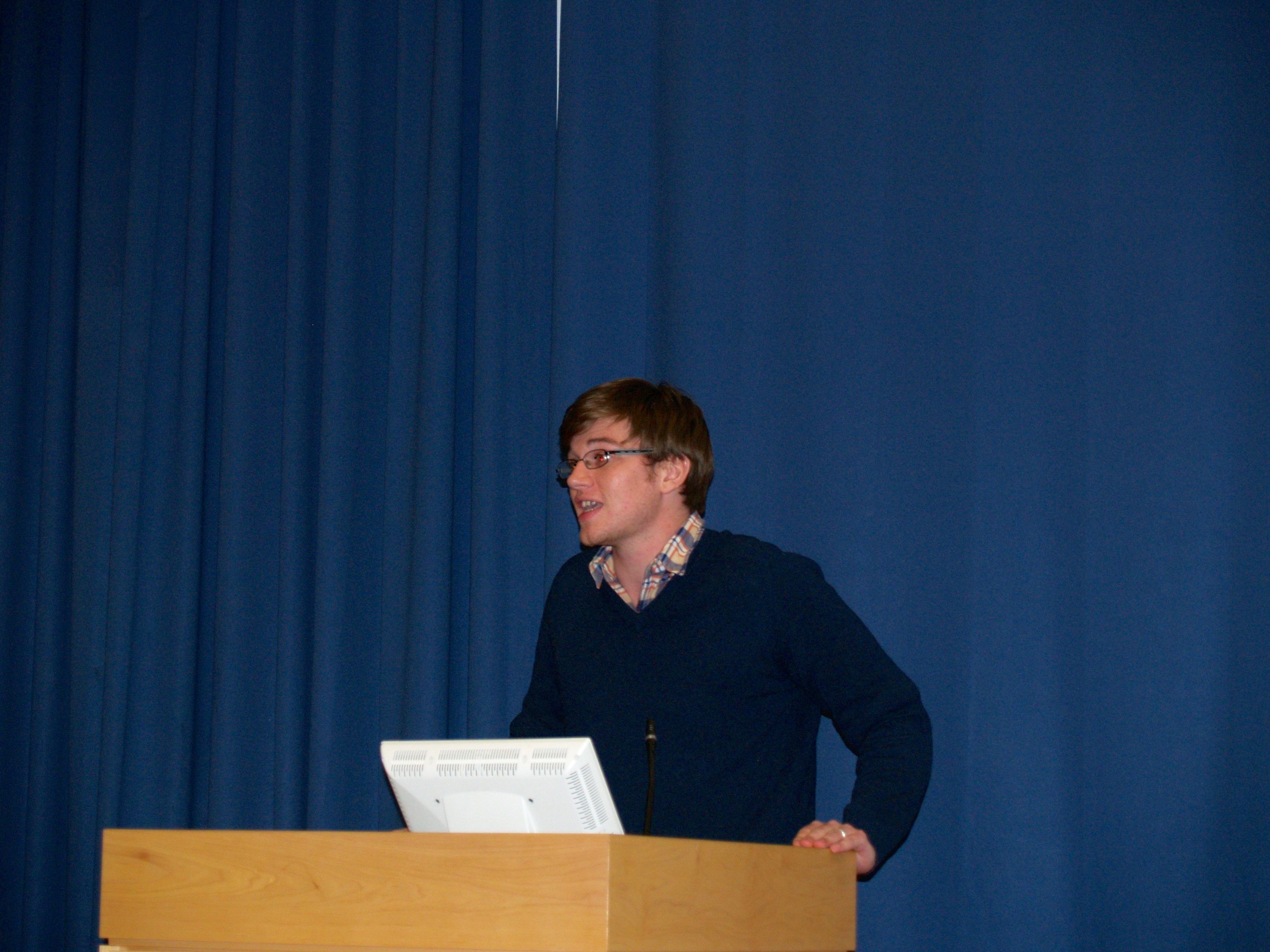
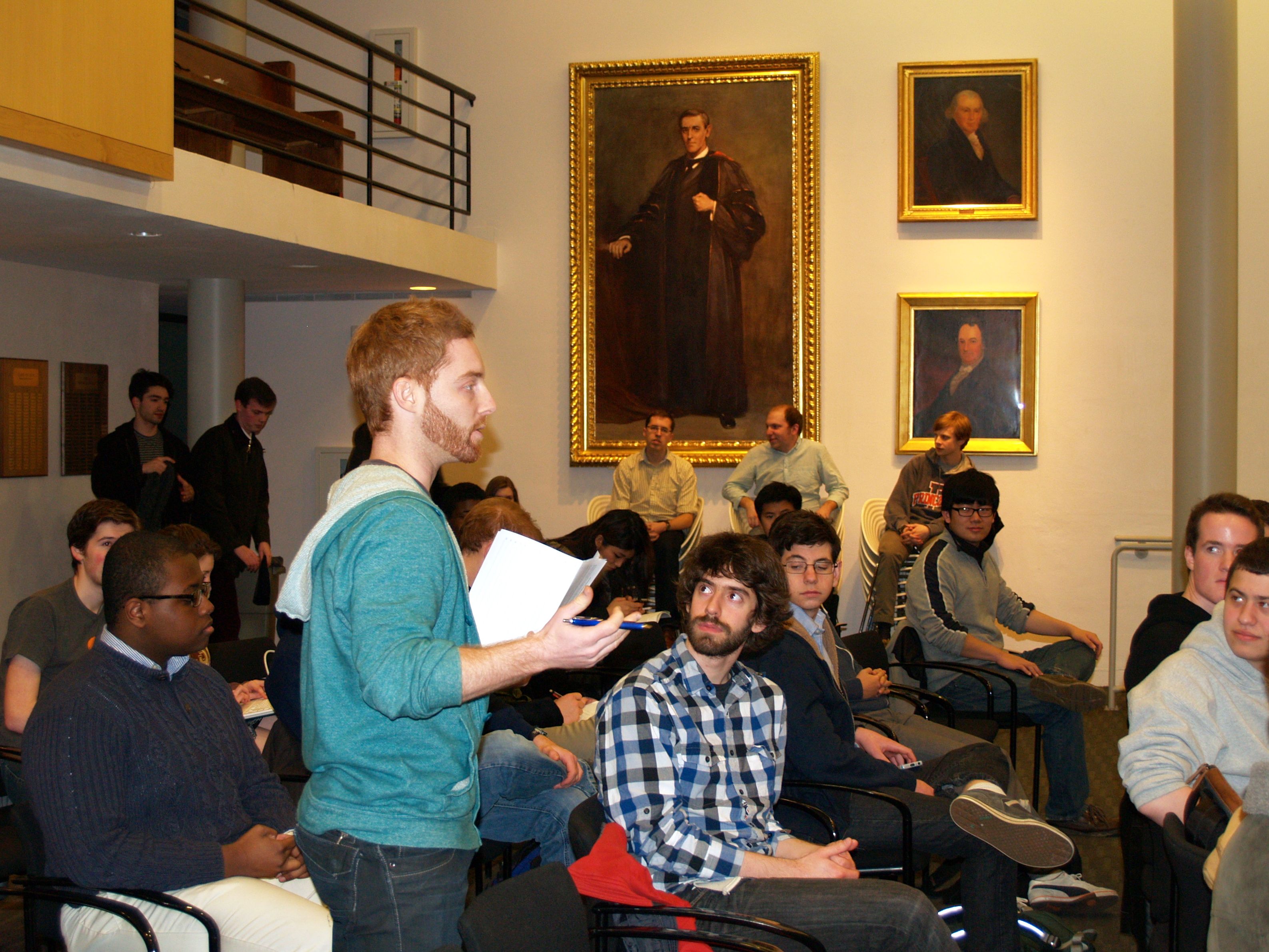
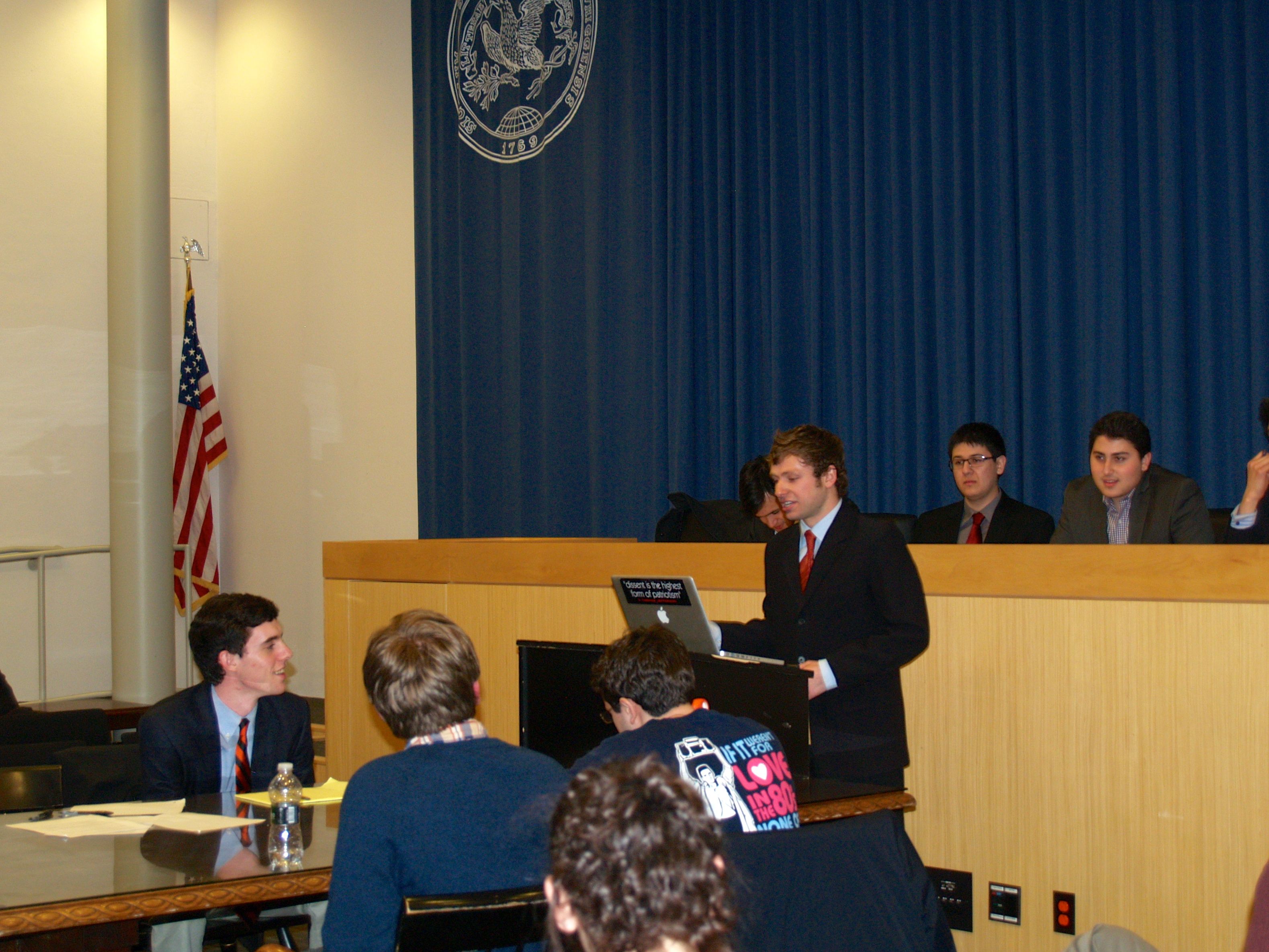

 RSS - Posts
RSS - Posts